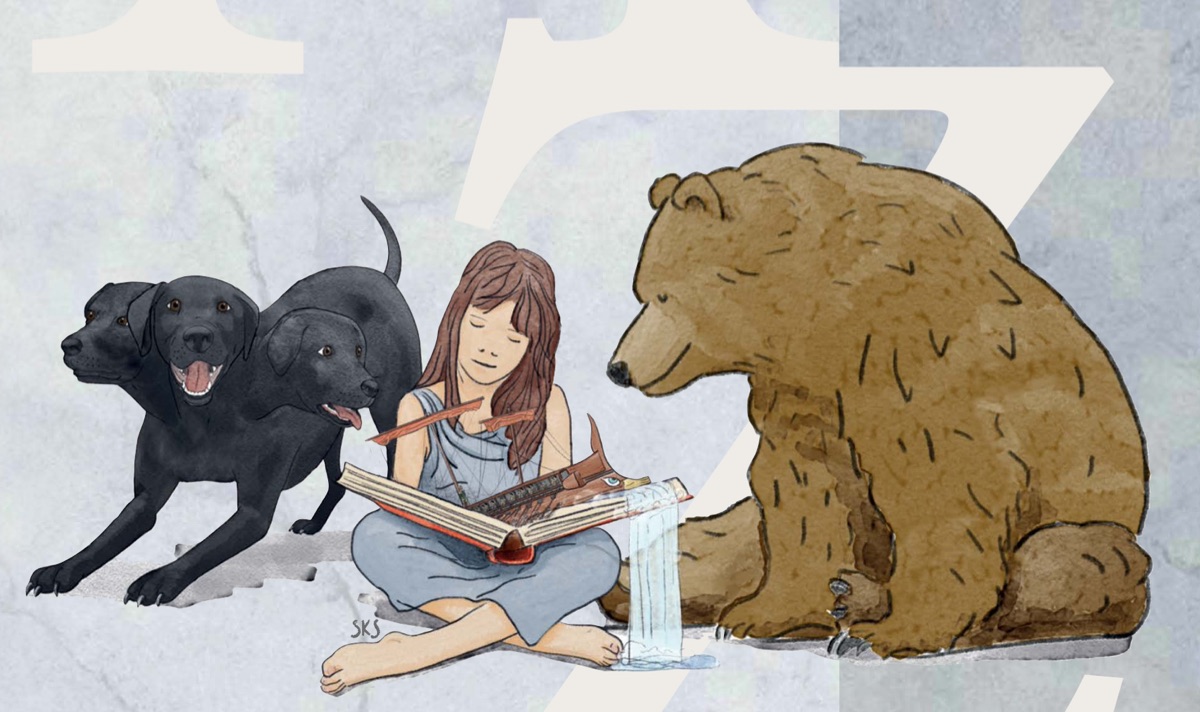Just how deeply the stories of antiquity influence our contemporary imaginations is explored in a recently-published book, Classical Mythology and Children’s Literature: An Alphabetical Odyssey, co-authored by UNE researchers Associate Professor Elizabeth Hale and Dr Miriam Riverlea.
The book uses an alphabet of themes to draw together the otherwise unruly mass of material that represents myth in children’s literature. Elizabeth Hale, who has worked on the project for several years, hopes that the work “gives teachers, myth-obsessed children and everyday readers a resource to better understand the many-branched forms that myth takes in contemporary life”.
“For young readers, books are a guide to using one’s mind and heart to navigate life,” she says. “And there are few greater influences on the stories we tell than the mythology of the Ancient Greeks.”
“One of the things I learned while working on this project was the extent to which the books I read as a kid alluded to Classical mythology. I didn’t notice then, because I wasn’t looking for it, but mythological themes are everywhere.”
The book is one of a series published as part of an extensive research project, “Our Mythical Childhood”, which was awarded €1.49 million by the European Research Council in 2016. Elizabeth, an expert in children’s literature, was among the largely European researchers who won the grant.
"For young readers, books are a guide to using one’s mind and heart to navigate life. And there are few greater influences on the stories we tell than the mythology of the Ancient Greeks."
For the authors, one of the major challenges of developing An Alphabetic Odyssey was how to bring coherence to the huge mass of material they had to hand. The book’s index lists hundreds of sources. The Classics, noted the series’ editor, Professor Katarzyna Marciniak, in her introduction, have grown into “… a sea of modern texts, moved by lapping and overlapping waves of topics and concerns, styles and types, genres and forms, inspirations, influences and revisions, retellings and adaptations”.
The authors decided to corral their material under themes dictated by the alphabet: “B is for Beasts”; “D is for Dealing with Difficult Subjects”; “H is for How to Be Heroic”; “O is for the Olympians”.
Under each theme, the authors reach back to consider its meaning in Ancient Greece, and then return to the present to look at how the theme is addressed in contemporary literature, and how children relate to the idea. Break-outs point to how the concepts have been used by other authors over time.
Deep scholarship is evident throughout An Alphabetical Odyssey, but Elizabeth says the objective was to produce something of practical use. The writing strives for a delicate balance: accessible and interesting to all ages from teenager on, but without over-simplification.
Under the terms of the European Research Council grant, the book will be made available free online as a PDF for several years, before it reverts to a purely physical product. (The physical book can still be bought from the publisher.)
“We're not trying to make people buy the book,” Dr Hale says. “It is more important to us that we actually get the book out to be read and useful to researchers of all ages.”
The “Our Mythical Childhood” project is led by Professor Katarzyna Marciniak of the University of Warsaw’s Faculty of Artes Liberales. The project brought together researchers from Australia, Poland, the United Kingdom, Israel, and Cameroon in an inquiry into why the foundational stories of the ancient Greco-Roman world have such a potent presence in today’s culture.
Download the PDF version from: https://www.wuw.pl/product-eng-17978-Classical-Mythology-and-Childrens-Literature-An-Alphabetical-Odyssey-PDF.html
Buy the hard copy from: https://www.wuw.pl/product-eng-17494-Classical-Mythology-and-Childrens-Literature-An-Alphabetical-Odyssey.html



